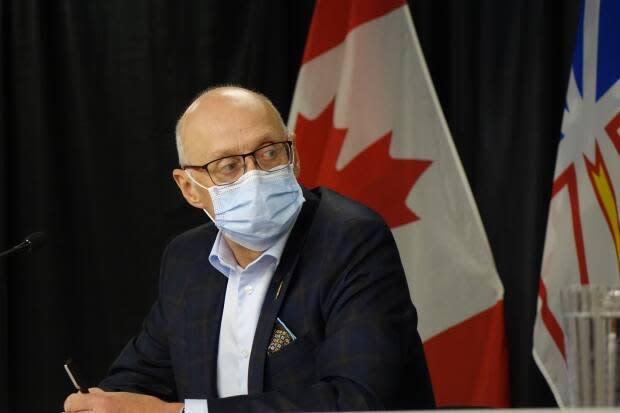How do collaborative team clinics work? A Q&A with an Eastern Health regional director


Collaborative team clinics are a significant part of the provincial government's plan to tackle a shortage of family doctors in Newfoundland and Labrador
As part of new measures announced on Monday, Health Minister John Haggie said at least four new collaborative clinics — two in Eastern Health and one each in Central and Western Health — will be opened on the island by the end of March 2022. Haggie said each clinic can handle at least 5,000 patients.
About 98,000 Newfoundlanders and Labradorians are currently without a family physician, according to the Newfoundland and Labrador Medical Association.
On Wednesday, CBC's Ted Blades spoke with Melissa Coish, Eastern Health's regional director of primary health care and chronic disease management and prevention, about collaborative team clinics and how they can help patients who don't have a family doctor.
This discussion has been edited for length and clarity.
Q: So, what is a collaborative team clinic anyway?
Melissa Coish: A collaborative team clinic is a primary health care clinic. It is a team of primary health care providers, so that would include folks like physicians, nurse practitioners, pharmacists, social workers, registered nurses, LPNs, physiotherapists, occupational therapists and dieticians.
Q: The NLMA said the other day one of the problems here is they're not sure that there are physicians available to work in these clinics. Do you have the two [clinics] that are under your roof here fully staffed yet?
MC: We're currently recruiting for staff for two of the additional clinics. What I can tell you is we've had an enormous amount of interest for both physicians and nurse practitioners. And in fact, the entire team. Providers want to work in this environment, and so we've heard from providers in [St. John's] and across the country, who may be interested in coming to work for us.
Q: If someone out there doesn't have a physician, a family physician at this moment, how do they get signed up to go here? Do they need to sign up?
MC: They will. We're currently working with our partners to build a registry. The intent would be to then centralize the process. So if there was an individual in the community who was without a primary provider, they would go through this process of registering, either online or through the phone, so that they would then be be placed on a list and we would then be able to roster them to either one of the three clinics right now in the city.
Q: And these two new clinics. How many people can they accept? How many patients can they have on their roster?
MC: When we get started, every year we'll increase the number. By the end of four years, we're looking to have up to 7,500 individuals connected to each clinic. By March, we could have upwards of 2,500 people and probably more than that. We've got our head down, we're focused on getting folks recruited and getting them on the ground and working and starting to address this issue.

Q: If a patient is signed up for one of these clinics, and you say you're recruiting doctors and nurses and other people for it, but if a patient goes in there, will they get to see the same doctor they saw the last time?
MC: They will. Our goal is truly to provide continuity of care and attachment. And so what I mean by that is if you're a patient of the clinic, you will have what's called the most responsible provider, and that may be a physician or it may be a nurse practitioner, but that individual provider will be the most responsible for your care. You may need care from somebody else on the team, and that's the beautiful thing about the model. If you come in through the door and you require mental health support or chronic disease management through a registered nurse, then you would be able to avail of those services. But there is continuity of care.
Q: When do you hope to have these two new clinics open?
MC: So we've got some aggressive timelines. Mid-December, we've already hit the ground running. We've started the recruitment process. We've started the renovation process. So you'll hear from us very soon in terms of the ability to register through that registry process.
Q: How do people find out more information? How do they find out when and how they can sign up?
MC: As details become available, we certainly will be sure to push that out to the public, and it'll be very clear how they'll be able to access these clinics.

 Yahoo Movies
Yahoo Movies 
